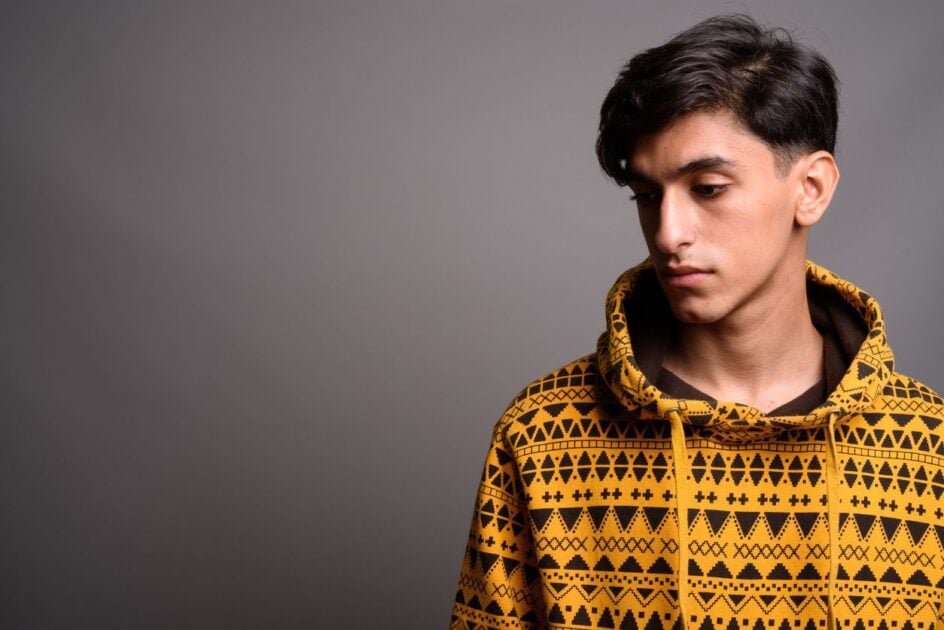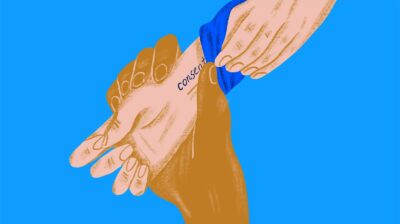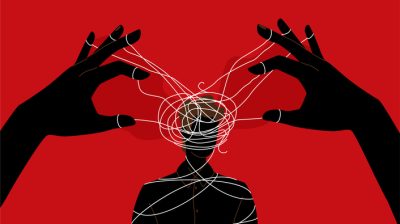What are the different types of abuse?
Find out more about the types of abuse and where to turn for help.

Abuse can take many forms, and a person may use one or more types of abuse against a person they are in an intimate relationship with or live with. In these situations, the person being harmed is experiencing domestic violence or coercive control. Learn more about domestic violence and coercive control.
This factsheet provides information on different types of abuse and provides specific support services available for each type.
While this article offers a broad overview of abuse, it is important to acknowledge that there are other types of abuse not included in this article, such as:
- Organisational abuse: When an organisation or service provider fails to deliver adequate care
- Discriminatory abuse: When a person’s needs are overlooked based on their gender identity, sexual identity, disability, race, or other social differences
- Human trafficking or modern slavery: When individuals are forcibly moved without their consent for the benefit of others
Different types of abuse
Understanding abuse and the different forms it takes can help you recognise it more easily and find appropriate support.
The types of abuse covered in this article are:
Physical abuse
Sexual abuse
Emotional/psychological abuse
Financial/material abuse
Neglect
Online or digital abuse
Image-based sexual abuse
Physical abuse
Physical abuse happens whenever someone uses physical force or threatens to use physical force against another person. This can lead to actual physical injury or may not, since physical abuse, under Irish law, includes in cases where someone threatens or deliberately puts someone in a situation where there is a high risk of physical harm. A person might threaten or deliberately put someone in a situation where there is a high risk of physical harm. Physical abuse can happen once or many times.
Examples of physical abuse
Physical abuse can take many forms. Some examples of physical abuse include:
- Threats to hurt you or people around you
- Hitting, slapping, kicking, punching
- Biting, scratching
- Pushing, shoving, or shaking
- Choking/strangulation
- Trapping someone’s body or restraining them
- Throwing things at someone or using other objects to harm their body
- Burning or scalding
- Pulling hair
- Deliberate misuse of drugs or medication, including failing to give someone prescribed medication
- Excessive force in delivery of personal care, including force-feeding or inappropriately restraining someone against their will
- Forcing someone to engage in activities or limiting their activities against their will
- Deliberately exposing someone to excessively hot or cold conditions
- Any mutilation of the body, including female genital mutilation or removal of the female external genitalia
Finding help for physical abuse
There are a range of support services available to people experiencing physical abuse. Some of these include:
- If you feel you are in immediate danger, call 112 or 999 to contact the Gardaí or if you are not in immediate danger, you can go to your local Garda station in person to report domestic abuse or coercive control. If you feel it is unsafe to make a phone call, you can text the Emergency Services by sending an SMS/Text message to 112
- Women’s Aid runs a free 24 hour helpline for anyone who wants to talk in confidence about abuse in their relationship or someone you know. Their helpline is available on 1800 341 900. They also offer a telephone interpretation service in over 240 languages, and an instant messaging service
- At toointoyou.ie young people can take the Relationship Quiz, discover the red flags of abuse, learn how to help a friend, and find support. If you are worried about your own or a friend’s relationship, you can use the chat support service, which is free and confidential
- People aged under 18 can contact Childline’s 24-hour helpline on 1800 666 666
- Safe Ireland supports 37 domestic abuse services located in towns across Ireland. Their services provide emotional support, counselling and advice, helping women and children to find safe accommodation, supporting them to access courts and make applications for domestic violence protection orders. Find your nearest service on the Safe Ireland website
- Men’s Aid supports male victims of domestic abuse and/or coercive control.They run a national helpline on 01 554 3811, Monday to Friday 9am to 5pm
- The Men’s Development Network operates the National Male Advice Line on 1800 816 588 for men experiencing or who have experienced domestic violence. This service operates on Monday and Wednesday from 10am – 8pm, Tuesday and Thursday from 12pm – 8pm and Friday to Sunday and public holidays from 2pm – 6pm
Sexual abuse
Sexual abuse occurs when a person exposes someone to unwanted sexual activity or forces them to be involved in it. This type of abuse typically involves forceful and controlling behaviours, and using another person for sexual pleasure or gain. Sexual acts are abusive when they are performed without consent or regard for whether a person can legally give consent. In Ireland, the legal age of consent is 17, meaning individuals under this age cannot legally agree to sexual activity.
Examples of sexual abuse
Sexual abuse includes both sexual activities involving physical contact and sexual activities that do not involve physical contact.
Non-contact sexual activities can include:
- Indecent exposure, where a person inappropriately exposes parts of their body to someone
- Stalking, where a person repeatedly follows, watches or seeks contact with someone in a way that makes them feel unsafe
- Grooming, where a person builds a trusting relationship with someone (typically a child or young person) for the sole purpose of engaging in future non-consensual sexual activity. Often, the person being groomed is not old enough to consent to sexual activity
- Forcing someone to watch pornography or any sexual activity
- Distributing sexual images or videos of someone online without their consent (e.g., “revenge porn”)
- Sexual harassment on social media, where a person engages in sexually harassing, intimidating or threatening behaviour online
Contact sexual activities can include:
- Deliberate fondling or inappropriate touch anywhere on someone’s body
- Forcing, guilting, or manipulating someone to engage in any unwanted sexual activity
- Using body parts or other objects to penetrate a person’s vagina, anus, or mouth
- Taking sexual videos or photographs of someone without their consent
- Female genital mutilation or removal of the female external genitalia
- Unwanted kissing or intimate touching
- Unwanted rough or violent sexual activity e.g. strangulation or ‘choking’
- Refusing to use protection e.g. a condom or restricting contraception
Sexual abuse can be carried out by a partner, ex-partner, someone you know or a stranger. It is common within romantic relationships.
Finding help for sexual abuse
There are a range of support services available to people experiencing sexual abuse. Some of these include:
- The Rape Crisis Helpline offer a free and confidential listening and support service for anyone who has been raped, sexually assaulted, sexually harassed or sexually abused at any time in their lives. Their 24-Hour National Helpline is available at 1800 77 8888
- Connect Counselling provides anonymous professional telephone counselling service for survivors of physical, emotional and sexual abuse. Contact their helpline on 1800 477 477 between 5pm-9pm, Wednesday to Sunday
- Sexual Assault Treatment Units (SATUs) provide information on all your care options if you are over the age of 14 and have been raped or sexually assaulted. There are 6 SATUs in Ireland, the HSE have a list of your nearest unit and its contact details
- CARI (Children at Risk in Ireland) provides child-centred therapy for children & adolescents who have been affected by sexual abuse. CARI also provides therapy to children, up to 12 years of age, who present with sexually harmful behaviour
- At toointoyou.ie, young people can find information and support for sexual abuse through the chat support service which is free and confidential
- Women’s Aid runs a free 24-hour National Freephone helpline for anyone who wants to talk in confidence about abuse in their relationship or someone you know. Their helpline is available on 1800 341 900. They also offer a telephone interpretation service in over 240 languages, and an instant messaging service
Emotional/psychological abuse
Emotional or psychological abuse is a pattern of behaviour that intentionally conveys to someone that they are worthless, unwanted, or inadequate. This message can be communicated in both verbal and non-verbal ways and often leads to significant mental distress. Emotional and psychological abuse can include extreme forms of bullying and harassment. However, it is important to understand that occasional conflict or emotional difficulties in relationships do not typically qualify as emotional or psychological abuse.
Examples of emotional/psychological abuse
Emotional and psychological abuse can take the following forms:
- Blaming and humiliation
- Controlling, intimidating, and threatening behaviours
- Verbal abuse, or using words to hurt, threaten or belittle someone
- Cutting someone off from friends, family, and support networks
- Denying someone access to a shared home
- Demanding to know where a person is and who they are with all the time
- Patronising a vulnerable person with support needs, such as speaking to an older person as if they were a child
- Depriving a person of contact or threatening to abandon them
- Deliberately silencing a person or ignoring them
- Shouting, cursing, or invading someone’s space
- Denying someone the right to hold certain beliefs or practise their religion
- Threatening to hurt themselves or someone else
Finding help for emotional/psychological abuse
There are a range of support services available to people experiencing emotional or psychological abuse. Some of these include:
- At toointoyou.ie young people can find information and support for emotional abuse through the chat support service which is free and confidential
- Women’s Aid runs a free 24-hour National Freephone helpline for anyone who wants to talk in confidence about abuse in their relationship or someone you know. Their helpline is available on 1800 341 900. They also offer a telephone interpretation service in over 240 languages, and an instant messaging service
- Safe Ireland supports 37 domestic abuse services located in towns across Ireland. Their services provide emotional support, counselling and advice, helping women and children to find safe accommodation, supporting them to access courts and make applications for domestic violence protection orders. Find your nearest service on the Safe Ireland website
- Men’s Aid supports male victims of domestic abuse and/or coercive control. They run a national helpline on 01 554 3811, Monday to Friday 9am to 5pm
- The Men’s Development Network operates the National Male Advice Line on 1800 816 588 for men experiencing or who have experienced domestic violence. This service operates on Monday and Wednesday from 10am – 8pm, Tuesday and Thursday from 12pm – 8pm and Friday to Sunday and public holidays from 2pm – 6pm
- The Legal Aid Board can help you if you cannot afford to pay a solicitor privately. Legal aid provides legal advice and representation in court and with getting access to protection orders for you. Details of their local offices can be found on their website or by contacting their helpline on 0818 615 200
- Childline offers a helpline and online support, offering advice and support to people under 18 years of age, available 24/7. Contact them on 1800 66 66 66
Financial or material abuse
Financial or material abuse happens whenever someone restricts another person’s access to or use of their personal finances. This can include personal possessions, income (including pensions and payments that a person is legally entitled to receive from the government), and assets (e.g., property).
Examples of financial or material abuse
Financial or material abuse can take the form of:
- Controlling or blocking someone access to their bank accounts, cards or cash
- Hiding or stealing someone’s bank card(s)
- Theft of a person’s property, possessions, or social welfare benefits
- Fraud, where a person deceives someone for their own financial gain (e.g., lying about information, using false documents)
- Monitoring what someone buys
- Forbidding someone from working or limiting the hours they can work
- Denying someone money for food for themselves and/or their children
- Internet scamming
Finding help for financial or material abuse
There are a range of support services available to people experiencing financial or material abuse. Some of these include:
- At toointoyou.ie young people can find information and support for financial/economic abuse through the chat support service which is free and confidential
- Women’s Aid runs a free 24-hour National Freephone helpline for anyone who wants to talk in confidence about abuse in their relationship or someone you know. Their helpline is available on 1800 341 900. They also offer a telephone interpretation service in over 240 languages, and an instant messaging service
- The Money Advice & Budgeting Service (MABS) provides support in all areas of financial debt including mortgage arrears, bank loans, overdrafts, utilities, credit cards etc. Contact their helpline for more information on managing debt on 0818 07 2000
- Men’s Aid supports male victims of domestic abuse and/or coercive control.They run a national helpline on 01 554 3811, Monday to Friday 9am to 5pm
- The Men’s Development Network operates the National Male Advice Line on 1800 816 588 for men experiencing or who have experienced domestic violence. This service operates on Monday and Wednesday from 10am – 8pm, Tuesday and Thursday from 12pm – 8pm and Friday to Sunday and public holidays from 2pm – 6pm
- The Legal Aid Board can help you if you cannot afford to pay a solicitor privately. Legal aid provides legal advice and representation in court and with getting access to protection orders for you. Details of their local offices can be found on their website or by contacting their helpline on 0818 615 200
Neglect
Neglect involves depriving a person of the proper care or protection they need, which can harm their physical, emotional, or psychological well-being. There are various reasons neglect might happen, including:
- Withholding support to cause harm: When someone deliberately refuses to help a vulnerable person meet their basic needs in order to cause them harm
- Lack of knowledge: When a caregiver does not support the needs of a vulnerable person because they don’t know how, or such knowledge being withheld by someone causing abuse
Examples of neglect
Below are some examples of neglect:
- Depriving someone of their basic needs, such as medication, heating, water, food, and leisure activities
- Depriving someone access to essential services and opportunities, such as social care, healthcare, and education
- Ignoring someone’s need for medical treatment
- Refusing to adapt a person’s environment to meet their basic needs
- Leaving a person who requires personal assistance alone for long periods without any care
- Ignoring a person’s need for help to maintain their personal hygiene
Finding help for neglect
There are a range of support services available to people experiencing neglect. Some of these include:
- If you feel you are in immediate danger, call 112 or 999 to contact the Gardaí or if you are not in immediate danger, you can go to your local Garda station in person to report domestic abuse or coercive control. If you feel it is unsafe to make a phone call, you can text the Emergency Services by sending an SMS/Text message to 112
- Tusla is responsible for child protection and welfare in Ireland. Concerns around child neglect should be reported to Tusla directly or your nearest social worker
- The National Counselling Service (NCS) provides free counselling to people aged 18 or older if you have experienced childhood abuse or neglect. You can self-refer to your nearest centre
- Childline offers a helpline and online support, offering advice and support to people under 18 years of age, available 24/7. Contact them on 1800 66 66 66
Online or digital abuse
Digital abuse refers to any kind of abusive interaction that happens online or through social media.
Examples of online or digital abuse
Digital abuse typically involves sharing sensitive images or videos online without someone’s consent, engaging in online fraud or financial abuse, and stealing personal information, among other behaviours.
Online abuse is also when someone uses technology like texting and social media to harass, intimidate, control, monitor or stalk their partner or ex-partner online. This can include:
- Using your phone or another device to track and/or restrict your movements
- Monitoring and controlling how you use the internet
- Harassing you through DMs, texts, and comments
- Sending unwanted, controlling, or sexually explicit messages via email, text, or through social media
- Stealing or pressuring you to share your account passwords
- Looking through your phone in secret or demanding to look through your phone
- Subjecting you to image-based sexual abuse.
Finding help for online or digital abuse
There are a range of support services available to people experiencing online or digital abuse. Some of these include:
- At toointoyou.ie young people can find information and support for online abuse through the chat support service which is free and confidential. They can also learn how to stay safe online with this guide
- Women’s Aid runs a free 24-hour National Freephone helpline for anyone who wants to talk in confidence about abuse in their relationship or someone you know. Their helpline is available on 1800 341 900. They also offer a telephone interpretation service in over 240 languages, and an instant messaging service
- Hotline.ie is the national reporting centre where members of the public can securely, anonymously, and confidentially report concerns in respect of illegal content online including intimate image abuse
- Contact the Gardai to report any incidents of blackmail around intimate images or other illegal content and get help on what to do next
- You can contact a legal professional to engage their assistance in removing intimate images. The Legal Aid Board can help you if you cannot afford to pay a solicitor privately. Details of their local offices can be found on their website or by contacting their helpline on 0818 615 200
Image-based sexual abuse
Image-based sexual abuse involves taking sexually explicit images or videos of you and sharing or threatening to share them online without your consent or knowledge. When a person subjects you to image-based sexual abuse, they usually do so with the intention of causing you emotional or psychological harm. Image-based sexual abuse can include so-called “revenge porn” or “sextortion”, as well as the use of “deepfakes” (i.e., AI-altered or generated images and videos).
Image based sexual abuse is a crime under Coco’s law. If you think your intimate images or videos have been shared without your consent, you can find out what to do at toointoyou.ie. If someone has shared an intimate photo or video of you without your consent, Hotline.ie, the Irish national reporting centre, can help you report and remove this online content.
Abuse can take many forms. Regardless of what form it takes, you have a right to personal safety, respect, and a life free of intimidation and threats. If you’re worried you’re being abused, remind yourself of how important it is to reach out for help. You can access practical help and confidential support from any of the services listed in this article.
Feeling overwhelmed and want to talk to someone?
- Get anonymous support 24/7 with our text message support service
- Connect with a trained volunteer who will listen to you, and help you to move forward feeling better
- Whatsapp us now or free-text SPUNOUT to 50808 to begin.
- Find out more about our text message support service
If you are a customer of the 48 or An Post network or cannot get through using the ‘50808’ short code please text HELLO to 086 1800 280 (standard message rates may apply). Some smaller networks do not support short codes like ‘50808’.






